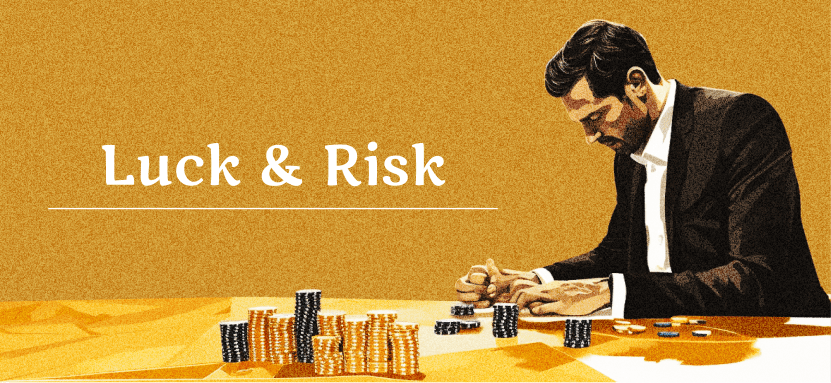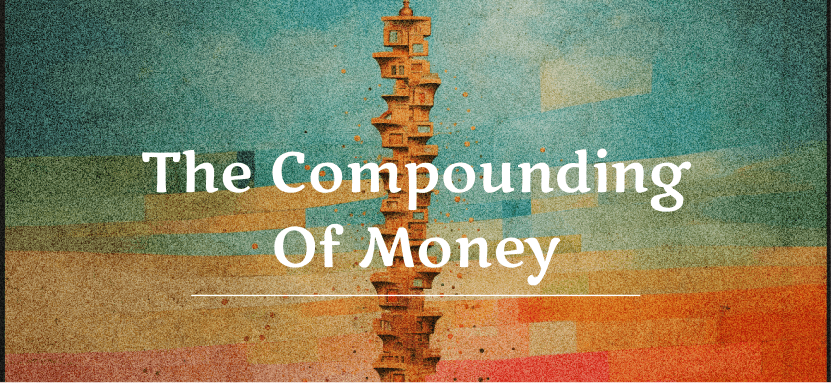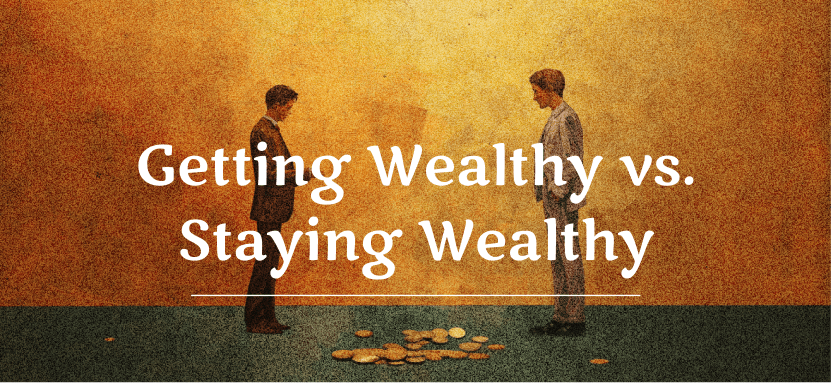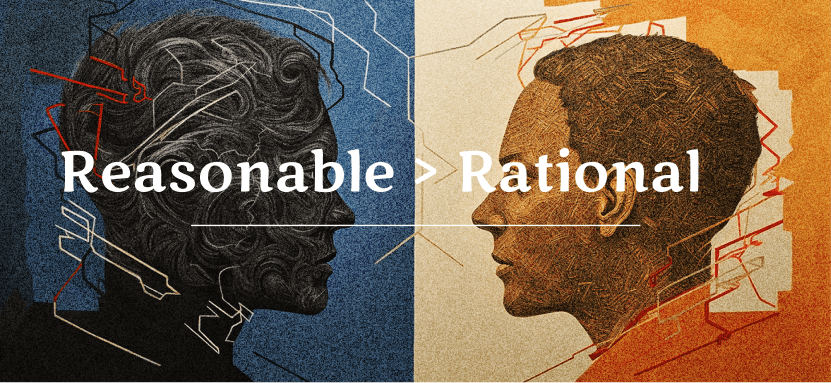Explore the World's Best Ideas
Join today and uncover 100+ curated journeys from 50+ topics. Unlock access to our mobile app with extensive features.
Money = Behaviour
Doing well with money is not necessarily about what you know, but about how you behave. Is what Morgan Housel explores in his popular book, where he shares 19 stories that explore the behavioral aspects of personal finance.
To Note:
- Financial success is not hard science, it’s a soft skill where how you behave is more important than what you know.
- To grasp why people bury themselves in debt, you need to study the history of greed, insecurity & optimism.
- Not all success is due to hard work, and not all poverty is due to laziness. Keep this in mind when judging people, including yourself
7.58K
57.4K reads
No One’s Crazy
Everyone looks at money through the lens of their past experiences.
You can read what it was like to lose everything during, say, The Great Recession, but you will never bear the emotional scars of those who survived it and are now afraid to invest again. It’s important to remember, then, that until you’ve lived through a financial crisis and felt its consequences, you will never understand why people behave the way they do.
6.26K
32.3K reads
Luck & Risk
Nothing is as good or as bad as it seems. Every outcome in life is guided by forces other than individual effort. Bill Gates had a competitive advantage over millions of other students because he attended one of the only high schools in the world that had the cash and foresight to buy a computer. In finance, luck is as much a force as risk.
- Be careful who you praise and admire, and be careful who you look down upon.
- Focus less on studying specific individuals and more on studying broad patterns.
6.67K
35.7K reads
6.78K
43.2K reads
Nothing is Ever Enough
Rich people do crazy things. Bernie Madoff had everything only to lose everything because he had no sense of enough. The lesson? There is no need to risk what you have and need for what you don’t have and don’t need.
- The hardest financial skill is getting the goalpost to stop moving.
- If expectations rise with results there is no logic in striving for more because you’ll feel the same after putting in the extra effort.
- Happiness equals results minus expectations.
- Social comparison is the problem.
- Accept that you might have enough, even if it is less than those around you.
7.09K
31.8K reads
The Compounding Of Money
Our minds are not built to handle the reality that compounding leads to logic-defying results.
Warren Buffett’s fortune isn’t due to just being a good investor. Rather it’s due to being a good investor since he was a child. Simplifying we can say he then just waited. The counterintuitive nature of compounding leads even the smartest of us to overlook its enormous power.
Linear thinking is so much more intuitive than exponential thinking. You never get accustomed to how quickly things can grow with compounding.
6.3K
25.9K reads
Getting Wealthy vs. Staying Wealthy
Good investing is not about making good decisions. It’s about consistently not screwing up. There are a million ways to get wealthy. The only way to stay wealthy is some combination of frugality and paranoia.
- Money success in a single word: survival. The ability to stick around for a long time without wiping out, or being forced to give up, is what makes the biggest difference.
- Getting money requires taking risks, being optimistic, and putting yourself out there.
- Keeping money requires the opposite of taking risks, it requires humility.
6.59K
22.5K reads
Tails, You Win
You can be wrong half the time and still make a fortune.
Anything that is huge, profitable, famous, or influential is the result of a tail event, an outlying one-in-thousands or millions event.
- Most of our attention goes to things that are huge, profitable, famous, or influential.
- When you accept that tails drive everything in business, investing, and finance, you realize that it’s normal for lots of things to go wrong, break, fail, and fall.
6.12K
18.8K reads
True Wealth Is Freedom
Controlling your time is the highest dividend money pays. The highest form of wealth is the ability to wake up every morning and say, “I can do whatever I want, when I want, with who I want, for as long as I want.” This is the highest dividend money pays:
- The ability to do what you want, when you want, with who you want, for as long as you want, is priceless. It is the highest dividend money pays.
- Using your money to buy time and options has a lifestyle benefit few luxury goods can compete with.
6.85K
16.9K reads
Man in the Car Paradox
No one is impressed with your possessions as much as you are.
People tend to want wealth to signal to others that they want to be liked and admired. But in reality, those other people often bypass admiring you, not because they don’t think wealth is admirable, but because they use your wealth as a benchmark for their own desire to be liked and admired.
- You might think you want an expensive car, a fancy watch, and a huge house. What you really want is respect and admiration from other people.
- Having expensive stuff will never bring people to respect and admire you.
6.48K
16K reads
True Wealth Is What You Don’t See
Spending money to show people how much money you have is the fastest way to have less money.
We tend to judge wealth by what we see because that’s the information we have in front of us. But the truth is that wealth is what you don’t see. Rich is a current income. Nice cars purchased. Diamonds bought. But wealth is hidden. It is an option not yet taken to buy something later. Not knowing the difference is a source of countless poor money decisions.
Someone driving a $100,000 car might be wealthy. Or he may just be poorer by $100,000.
6.45K
15.1K reads
Reasonable > Rational
Aiming to be mostly reasonable works better than trying to be coldly rational.
“Do not aim to be coldly rational when making financial decisions. Aim to just be pretty reasonable. Reasonable is more realistic, and you have a better chance of sticking with it for the long run, which is what matters most when managing money.” You’re not a spreadsheet, remember. You’re a person.
6.25K
14.9K reads
Save Money
Building wealth has little to do with your income or investment returns and more to do with your savings rate. The value of wealth is relative to what you need. A high savings rate means having lower expenses than you otherwise could, and having lower expenses means your savings go further than they would if you spent more.
- If you view building wealth as something that will require more money or big investment returns, you may become too pessimistic.
- You can build wealth without a high income but have no chance of building wealth without a high savings rate.
6.33K
13.8K reads
Mistakes & Errors
History is an unassailable guide to the future. A trap many investors fall the “historians as prophets” fallacy: an over-reliance on past data as a signal to future conditions in a field where innovation and change are the lifeblood of progress. Past performance is not indicative of future results—the world changes.
- Good ideas taken too far are indistinguishable from bad ideas.
- People underestimate the need for room for error in almost everything they do that involves money.
6.02K
12.6K reads
The Uncertain Future
Long-term planning is harder than it seems because people’s goals and desires change over time.
We’re such poor forecasters of our future selves that there’s a term for this phenomenon: The End of History Illusion. We’re aware of how much we’ve changed in the past, but we grossly underestimate how much our personalities, desires, and goal will change in the future.
You can’t prepare for what you can’t envision.
6.16K
11.7K reads
Leave Room for Error
The most important part of every plan is planning on your plan, not going according to plan.
Have room for error when estimating your future returns. For his own investments, Housel assumes the future returns he’ll earn in his lifetime will be ⅓ lower than the historic average. So, he saves more than he would if I assumed the future will resemble the past. It’s his margin of safety.
- Avoid single points of failure. If many things rely on one thing working, and that thing breaks, you have a catastrophe.
- The biggest single point of failure is a reliance on a paycheck to fund short-term spending.
6.13K
11.4K reads
Nothing Is Free
Everything has a price, but not all prices appear on labels.
The price of investing success is not immediately obvious. It’s not a price tag you can see, so when the bill comes due, it doesn’t feel like a fee for getting something good. It feels like a fee for doing something wrong.
Most things are harder in practice than they are in theory. This is often because we are not good at identifying what the price of success is, which prevents us from being able to pay it. The price of successful investing is volatility, fear, doubt, uncertainty, and regret.
6.04K
10.7K reads
You & Me
Avoid taking financial cues from people playing a different game than you are.
Few things matter more with money than understanding your own time horizon and not being persuaded by the actions & behaviors of people playing different games than you are. Go out of your way to identify what game you’re playing and ignore the rest.
- Bubbles happen when long-term investors playing one game start taking their cues from short-term traders playing another game.
- It is hard to grasp that other investors have different goals than u do.
- Rational people can see the world through a different lens than their own.
5.99K
10.4K reads
The Seduction of Pessimism
Optimism sounds like a sales pitch. Pessimism sounds like someone trying to help you.
In finance, pessimism is paid more attention than optimism and is, therefore, more persuasive. “It’s easier to create a narrative around pessimism because the story pieces tend to be fresher and more recent"
- Optimism is the belief that the odds of a good outcome are in your favour over time, even when there will be setbacks along the way.
- An iron law in economics: extremely good and extremely bad circumstances rarely stay that way for long because supply and demand adapt in hard to predict ways.
6.04K
10K reads
Believing In Narratives
Stories trump statistics. The more you want something to be true, the more likely you are going to believe a story that overestimates the odds of it being true.
- The more you want something to be true, the more likely you are to believe a story that overestimates the odds of it being true.
- Everyone has an incomplete view of the world, but we form a complete narrative to fill in the gaps.
- Coming to terms with how much you don’t know means coming to terms with how much of what happens in the world is out of your control.
- The illusion of control is more persuasive than the reality of uncertainty.
6.11K
10K reads
IDEAS CURATED BY
Total food specialist. Friendly webaholic. Coffee fan. Proud analyst. Tv expert. Explorer. Travel nerd. Incurable beer advocate.
CURATOR'S NOTE
The Psychology of Money is a collection of short stories exploring the strange ways people think about money and teaches you how to make better sense of it.
“
Curious about different takes? Check out our The Psychology of Money Summary book page to explore multiple unique summaries written by Deepstash users.
Piper E.'s ideas are part of this journey:
Learn more about moneyandinvestments with this collection
How to develop a healthy relationship with money
How to create a budget
The impact of emotions on financial decisions
Related collections
Different Perspectives Curated by Others from The Psychology of Money
Curious about different takes? Check out our book page to explore multiple unique summaries written by Deepstash curators:
15 ideas
Ashish R's Key Ideas from The Psychology of Money
Morgan Housel
1 idea
's Key Ideas from The Psychology of Money
Morgan Housel
2 ideas
Yoma Oniti's Key Ideas from The Psychology of Money
Morgan Housel
Discover Key Ideas from Books on Similar Topics
2 ideas
“I Don’t Want To Be Anything Other Than Me.”
Lewis Howes
8 ideas
How Rich People Think
Steve Siebold
9 ideas
Nudge: Improving Decisions About Health, Wealth, and Happiness
Richard H. Thaler, Cass R. Sunstein
Read & Learn
20x Faster
without
deepstash
with
deepstash
with
deepstash
Personalized microlearning
—
100+ Learning Journeys
—
Access to 200,000+ ideas
—
Access to the mobile app
—
Unlimited idea saving
—
—
Unlimited history
—
—
Unlimited listening to ideas
—
—
Downloading & offline access
—
—
Supercharge your mind with one idea per day
Enter your email and spend 1 minute every day to learn something new.
I agree to receive email updates



















